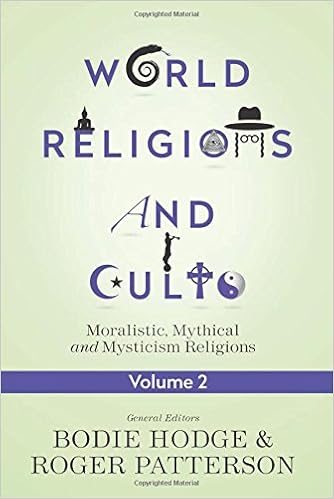Pantheism
Definition
Pantheism denotes any philosophy which claims that god and the universe are identical.
Keywords: Pantheism, Philosophies, Philosophy, Rational, Justification, Assumption, Presupposition, Contradiction, Reason, Universal Truth.
Veracity
Pantheistic claims are false .
Proof
Humans assume the universal truth that all contradictions are false. Any worldview that does not allow for this assumption to be rationally justified is deductively false.
Premise 1: If absolute ultimacy is shared, then universal truth claims are believed without reason.
Premise 2: Under pantheism, absolute ultimacy is shared by the fundamental elements of the universe.
Conclusion: Therefore, under pantheism, universal truth claims are believed without reason.
If pantheistic claims are true, there is no reason to believe universal truth claims, including universal noncontradiction. There is then no reason to believe that contradictory claims are deductively false, thereby making pantheistic claims themselves deductively false.
This Argument from Reason demonstrates that pantheism is false.

Gilbert Guttlebocker, Defender of Dragons
Riveting, yet absurd; romantic, yet innocent; Gilbert Guttlebocker, Defender of Dragons is a little Roald Dahl, a little Harry Potter, and a little Chronicles of Narnia, all rolled into one. Timothy McCabe collaborates with the great Benedict Ballyhoot to bring you the novel of the century!

In Printed Form
Along with numerous other authors including Don Landis, Bodie Hodge and Roger Patterson, Timothy McCabe contributes analyses of various world religions and cults in this volume from Master Books.
Other Writings
"How can someone who is changeless do anything at all?"
The Bible states that God spoke and created light on the first day of creation (Genesis 1:3). On subsequent days He created other elements of the universe, and on the seventh day He rested (Genesis 2:2). The Bible also tells us that God does not change (Malachi 3:6; Psalm 102:27; Isaiah 46:4). To many, this seems to be contradictory. It isn't.
Continue reading...
"If you accept the theory of evolution, only with god as the starter of it, when did souls come into existence?"
The Bible is clear that human beings did not evolve from other kinds of creatures. The Bible states in Genesis 2:7 that "the Lord God formed man of dust from the ground, and breathed into his nostrils the breath of life; and man became a living being." The creation of man from dust is confirmed in numerous other places in scripture including Genesis 3:19, Job 34:15, Psalm 104:29, and Ecclesiastes 3:20 and 12:7.
Continue reading...
"Why Pray? If it changes God's mind then he is not sovereign. If it does not change God's mind then it is pointless."
First of all, prayer is much more than just petitioning God or asking Him to do things. Instead, it is both an opportunity to build a relationship with the God of creation, and also an outpouring of that relationship. In Jesus's model prayer, known as the Lord's prayer, found in Matthew 6 and Luke 11, Jesus both begins and ends by praising the Father. He states His complete commitment to Him and dependence upon Him.
Continue reading...